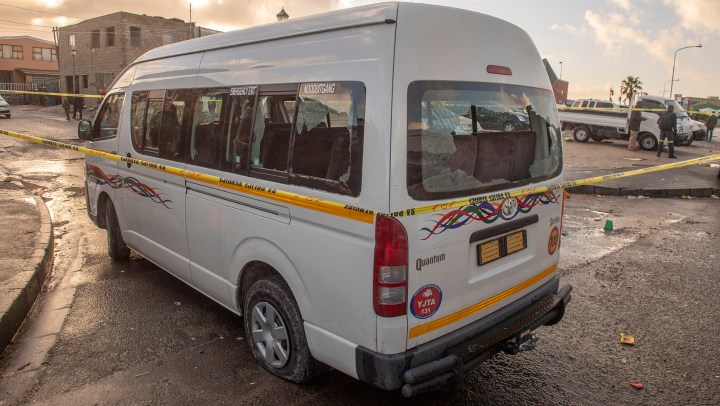COMMISSION OF INQUIRY
Gauteng taxi violence: ‘We have dropped the ball,’ says transport official

‘We are really struggling to formalise the taxi industry, also because they are a law unto themselves.’
The commission of inquiry into taxi violence in Gauteng was yesterday (Tuesday 17 February) told of more obstacles to ending minibus taxi wars, with officials in the department admitting they have “dropped the ball”.
It was Tshwane’s turn to take the witness stand. Representing Tshwane was its assistant director of conflict resolution, Abel Nkadimeng.
With the focus on operating licences, Nkadimeng told the commission that there are two forms of registration. He said some people were fully registered, others conditionally.
“Registration is meant to assist the operator to be captured on the system. The gap in the system in this regard is the fact that it does not capture the period an association remains conditionally registered.”
He told the commission that challenges in the Tshwane office stemmed from factors such as lack of political governance and a weak and outdated system. He said the lack of a law enforcement unit in the office increased operators’ disrespect for the law and encouraged the culture of impunity.
“We have dropped the ball as far as dealing with non-compliant operators is concerned,” Nkadimeng said.
“We are really struggling to formalise the taxi industry, also because they are a law unto themselves.”
Nkadimeng told the commission that there are 37 associations in the Tshwane region and not all of them were fully registered.
They haven’t been fully registered because they have not complied with the requirement that an association must have at least 30 operators.
The commission’s chair, Justice Jeremiah Shongwe, asked Nkadimeng: “So you are burdening your resources by including people who do not comply and your system is not in line with current conditions?”
“Sometimes they bypass the system and use the receipts from registration to operate. They argue that registration means they are in the process of obtaining operating licences and they should be allowed to operate,” responded Nkadimeng.
Justice Shongwe asked Nkadimeng: “Have you ever heard of an operator operating illegally? Is your department aware that there are people operating without operating licences?”
Nkadimeng said he was aware of this.
Justice Shongwe asked Nkadimeng what issues regarding routes result in violence.
“Mainly it’s encroachment. Legislation is silent on this issue,” Nkadimeng said.
Nkadimeng said the lengthy period it took to issue operating licences gave rise to fraudulent or illegal operating licences.
“Normally the problem is the system and network failures. Sometimes you even find that law enforcement cannot even verify the illegal operating licences.”
He told the commission that an application for an operating licence should take about 60 days but some took over a year to issue because of the lack of capacity in the department and the “weak and outdated system”.
“If we had a proper working system and sufficient and committed staff we would achieve far greater results than we currently do. This would also drastically reduce the waiting period for an operating licence upon application. We must improve the system.”
He said some operators had illegal licences, which led to them using unallocated routes, and this, in turn, led to conflict.
“You don’t recall any criminal case opened against an illegal operating licence holder?” Justice Shongwe asked Nkadimeng.
“No, that’s why these people are continuing. They get away with it,” said Nkadimeng. “There are people in the background who dictate how operations are run and they throw the already weak system in complete disarray.”
He told the commission that sometimes they merge associations for various reasons, and that these mergers were often a source of conflict.
He said there were efforts to ensure that police officers who are also minibus taxi licence holders come forward, adding that the presence of police officers as operators contributed to violence and compromised state security.
Nkadimeng told the commission that some minibus taxi conflicts have been ongoing since 2013.
“I would request that the commission looks into issues of capacity and training in the department because I am overworked.”
He said he works with a team of eight interns in Tshwane and that he is the only qualified official. He added that he was not trained in conflict resolution.
“The office is opened and managed by the interns, but on the aspect of conflict resolution I’m the only official who holds a permanent post in Tshwane.” DM


















 Become an Insider
Become an Insider